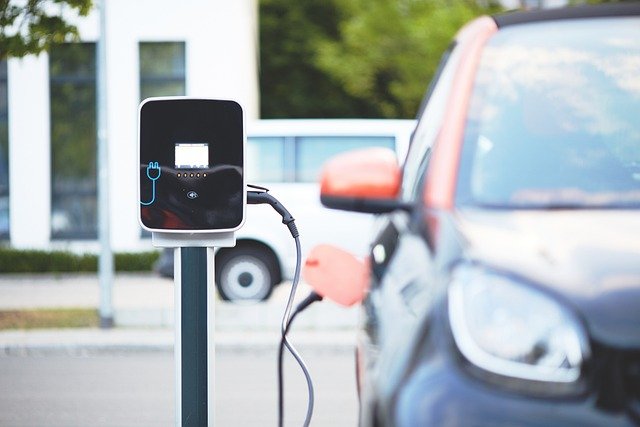Electric Vehicle Chargers: A Comprehensive Guide for Home Use
The growing popularity of electric vehicles (EVs) has led to an increased demand for efficient and convenient charging solutions. As more drivers make the switch to electric, understanding the various options for home charging becomes essential. This article explores the world of electric vehicle chargers, focusing on Level 2 chargers, smart charging solutions, and affordable options for residential use.

What are Level 2 EV Chargers for Home Charging?
Level 2 EV chargers are a significant upgrade from the standard Level 1 chargers that typically come with electric vehicles. These chargers operate on 240-volt power, similar to what large appliances like dryers use. Level 2 chargers can provide faster charging speeds, generally adding 25 to 30 miles of range per hour of charging. This makes them an ideal solution for overnight charging at home, ensuring your vehicle is ready for daily use.
Installing a Level 2 charger at home requires a dedicated 240-volt circuit, which may necessitate the services of a licensed electrician. While the initial setup cost might be higher than using a Level 1 charger, the increased charging speed and convenience often make it a worthwhile investment for EV owners.
How Do Smart EV Chargers with App Control Work?
Smart EV chargers represent the latest advancement in home charging technology. These devices combine the efficient charging capabilities of Level 2 chargers with advanced features controlled through smartphone applications. Smart chargers offer a range of benefits that enhance the charging experience and provide greater control over energy usage.
Key features of smart EV chargers often include:
-
Remote monitoring and control: Users can start, stop, or schedule charging sessions from their smartphones.
-
Energy consumption tracking: Apps provide detailed insights into charging habits and energy usage.
-
Time-of-use pricing optimization: Smart chargers can automatically schedule charging during off-peak hours to reduce costs.
-
Over-the-air updates: Manufacturers can improve charger functionality and add new features remotely.
-
Integration with home energy management systems: Some smart chargers can work in tandem with solar panels or other renewable energy sources.
These features not only offer convenience but can also help users save money on their electricity bills by optimizing charging times and taking advantage of lower electricity rates during off-peak hours.
What Options Exist for Affordable Electric Car Chargers for Home in 2025?
As the EV market continues to grow, manufacturers are developing more affordable home charging solutions to meet the increasing demand. While predicting exact prices for 2025 is challenging, current trends suggest that home EV chargers will become more accessible and cost-effective.
Several factors contribute to the affordability of home EV chargers:
-
Increased competition: As more companies enter the market, prices are likely to become more competitive.
-
Technological advancements: Improved manufacturing processes and materials may lead to lower production costs.
-
Government incentives: Some regions offer rebates or tax credits for the installation of home EV chargers, which can significantly reduce the overall cost.
When considering affordable options for home EV charging, it’s important to balance initial cost with features and long-term value. While basic Level 2 chargers may be less expensive upfront, smart chargers with energy management capabilities could provide greater savings over time through optimized energy use.
Comparison of Home EV Charger Options
To help consumers make informed decisions, here’s a comparison of different types of home EV chargers:
| Charger Type | Charging Speed | Smart Features | Typical Price Range |
|---|---|---|---|
| Level 1 (120V) | 3-5 miles/hour | No | Included with EV |
| Basic Level 2 (240V) | 25-30 miles/hour | No | £300 - £600 |
| Smart Level 2 (240V) | 25-30 miles/hour | Yes | £500 - £1000 |
| High-Power Level 2 (240V) | Up to 60 miles/hour | Often included | £800 - £1500 |
Prices, rates, or cost estimates mentioned in this article are based on the latest available information but may change over time. Independent research is advised before making financial decisions.
What Factors Should You Consider When Choosing a Home EV Charger?
Selecting the right EV charger for your home involves considering several factors:
-
Charging speed: Ensure the charger can meet your daily driving needs.
-
Vehicle compatibility: Check that the charger is compatible with your specific EV model.
-
Installation requirements: Consider the electrical capacity of your home and potential installation costs.
-
Smart features: Decide if advanced features like app control and energy management are important to you.
-
Future-proofing: Choose a charger that can accommodate potential upgrades or a second EV in the future.
-
Warranty and support: Look for products with robust warranties and reliable customer support.
By carefully evaluating these factors, you can select a home EV charger that provides the right balance of performance, features, and affordability for your specific needs.
As electric vehicles become more prevalent, home charging solutions will continue to evolve. Whether opting for a basic Level 2 charger or a more advanced smart charging system, the right choice can significantly enhance the EV ownership experience. With ongoing advancements and increasing affordability, home EV charging is becoming more accessible, supporting the wider adoption of electric vehicles and contributing to a more sustainable transportation future.




